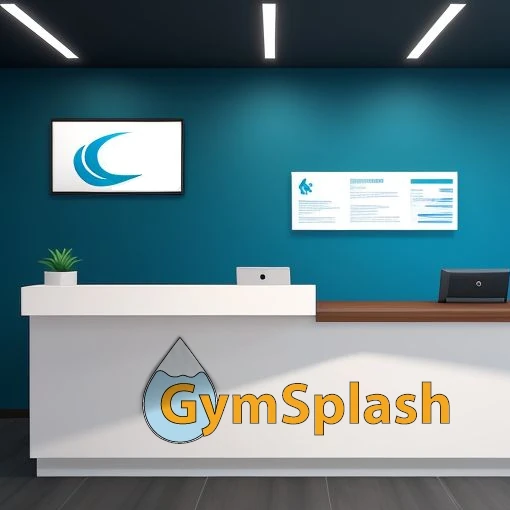If you run a fitness business (online or brick-and-mortar), you know how much work goes into maintaining it. Operating a facility or online training business is no simple feat. From accounting and payroll to gym marketing and the actual training, the to-do list is never-ending. However, one common recommendation for businesses is to outsource some tasks, which may sound appealing and straightforward to most. Sometimes, it’s important to consider keeping some duties in-house instead. In this blog we will dive into operations for gyms and discuss the pros and cons of outsourcing the burdens.
Typical Operations for Gyms and Fitness Businesses
Generally speaking, most small businesses share substantial overlapping functions and tasks—fitness-based organizations are no exception. That said, it’s important to remember that having a firm understanding of what goes into your gym’s operations is critical, as you cannot manage what you cannot measure. Therefore, knowing base metrics, procedures, and key performance indicators (KPIs) is vital before considering whether to outsource or internally develop a role or task.
Before we discuss the pros and cons of outsourcing and in-house management, we will briefly discuss some typical operations for gyms, studios, and online fitness trainers.
Marketing
Marketing for gyms typically involves branding, campaign development, website enhancements, and properly catching your target audience’s attention, interest, and business. When done right, it can not only help keep leads coming into your gym’s sales funnel but also improve retention and referral rates as well as overall customer satisfaction levels.
Customer Service
Like any business (B2B or B2C), customer service plays a pivotal role in the overall success of your company. Even the best products or services can become utter failures if customers have a terrible experience working with the company. Therefore, ensuring that you properly deliver on your products/services and ensuring clients feel valued, heard, and cared for is imperative to their overall impression of your organization. High-quality customer service can promote longer average customer lifespans (regarding doing business with you), better chances of word-of-mouth marketing, and more positive reviews and social proofing of your facility.
Accounting
The infamous “A-word” most owners want to avoid. Why? Because accounting, taxes, and general number crunching can get confusing, hard to track, and sometimes make you accept the hard reality that your business may not be doing as well as you think. Aside from ensuring you pay taxes and bills on time (and correctly), accounting is essential for understanding the financial health of your business. This information is crucial for any type of company growth, like bringing on new employees, adding additional capital (i.e., equipment), and improving or expanding the physical space. Having a properly managed system or person in place to ensure your tracking, analyzing, and optimizing your finances can be a make-or-break situation for many businesses, especially fitness businesses, during their first few years of operations.
Payroll Management
Sometimes, when considering operations for gyms, the topic of payroll is held in the same mind space as accounting for some training studio owners. While this is understandable as it is involved in cash flow, is relatively predictable, and involves the finances, payroll management is often a separate process for owners to manage or an additional add-on service for delegation. It is critical to remember that payroll issues can be a red flag for employees, leading to concern, hostility, or quitting. Ensuring that you have a reliable system in place to pay your employees on time and remove any friction in the process can help reduce one of the big reasons trainers and staff members tend to leave their employers.
Systems and Data Administration
As your business gets up and running, implementing systems becomes essential to long-term success and growth. Whether the systems are digital, paper, or manual, developing a documented process for your operations is critical as it sets a uniform and semi-predictable procedure for managing your facility. Further, as you look to optimize operations, automation and software are great solution sources that require work implementing, managing, and utilizing.
Maintenance and Cleaning
Preventive maintenance and cleaning are two vital tasks that any fitness facility needs to have a plan for. Capital equipment (i.e., fitness machines) often require maintenance, lubrication, or replacement pieces as multiple members use them over time. Keeping up with these tasks can lengthen the lifespan of your equipment, keep them operating correctly, and reduce safety concerns. Additionally, equipment and facility cleaning measures are paramount to the overall health and safety of your patrons as well as a noteworthy factor in their overall impression of your business.
Pros and Cons of Outsourcing or Hiring In-House
Now that we’ve covered the typical tasks and operations for gyms and most other fitness-based businesses, let’s explore what goes into accomplishing these and when or where it may make sense to outsource them.
Marketing a Gym
When marketing a gym, this role is typically one that the owner takes on immediately, as it is imperative to getting awareness, interest, and business–especially early on. As time passes and the training facility begins to pick up, keeping up with marketing opportunities, email newsletters, advertisements, and even social media pages can become cumbersome. Unfortunately, marketing campaigns need fresh content, updates, and optimizations to operate effectively. Neglecting this aspect of the business over time can lead to a drop in lead acquisition, less than favorable conversion rates, or even a drop in local listing search rankings.
Outsourcing this aspect of a business can be an exceptional opportunity to free up your time and energy as the gym owner; however, it is more complex than just handing over the keys to your accountancy. Anytime a third party is involved with your marketing or sales processes, you should ensure that you have documented processes, procedures, and brand style guides to present them with. These documents will help promote the accomplishment of the job while also helping keep the content more in line with the overall brand and culture you are building. Conversely, keeping the marketing in-house can help promote a more intimate version of your brand and community, as that person will typically work more closely within your business than an agency would and may have faster turn-around times on projects or resources.
Customer Service for Gyms
While the title “customer service” in a gym setting is more typical of larger facilities, you can still find the elements of this role in small- and medium-sized facilities. Typically falling under a front desk worker or a manager of sorts for in-house roles, these customer service tasks can range from answering calls, setting up new members/clients, checking in members, and even helping with booking/scheduling for trainers. These tasks can be pivotal for your client’s overall experience as well as potential clients’ first impressions when interacting with your business. Unfortunately, hiring on-site for this will increase your headcount and impact your operating expenses.
Outsourcing for these tasks can look like implementing automated systems for phone call management, third-party centers for handling calls and questions, and even automated self-check-in kiosks for facility access. The downside of outsourcing these aspects can include fewer opportunities for interacting with your members (which could impact your retention rates), the cost of implementing and operating multiple services, and the initial effort involved in setting up the systems and services.
Payroll and Accounting for Gyms
Well-maintained finances are one of the non-negotiable options for gyms, as they can help owners make smart and critical decisions when operating their facility. Poorly managed finances can lead to improper fund management, the inability to pay employees, or the closure of operations due to a lack of sustainable revenue.
In many small businesses, accounting is often one of the first roles outsourced/hired when headcounts are growing – and for the reasons mentioned above. That said, owners need to understand their finances and avoid just handing off the number crunching to someone else and forgetting it. This recommendation comes from the benefits gained when owners know the financial health of their business. From better strategic planning to understanding long-/short-term ramifications of employee or membership gains and losses, gym owners with solid financial acumen for their facility can make more informed and impactful decisions.
Data and Systems for Gyms
Developing and implementing systems can often be an enticing chance to offload much of the work onto a manager, software system, or even off-site agency. While you can usually see progress quickly when going these routes, there are some things to keep in mind as a gym owner.
For any business owner, it is vital to establish your brand early on and develop and document the essentials within your facility. Many aspects fall within a business’s branding and operations style, from how you stock your facility with equipment to how you communicate within your company. That said, when hiring roles for your business, especially on the automation and systems side, ensuring that their work and results align with the values, voice, and style you want is crucial to harmonious business development.
Misalignments in this area, whether from abdication or a lack of ownership input/review, can lead to confusing brand messaging, clunky interactions, and even a drop in leads (or members).
Maintenance and Cleaning for Gyms
Whether you are working with an OEM/supplier maintenance agreement, have a private technician, or do the work yourself, it’s crucial to establish cleaning and preventive maintenance (PM) schedules and standards. These guidelines and calendar holds allow owners to confirm and monitor that processes, procedures, and standards are being upheld.
Lack of structure, clarity, or standards in these areas can negatively impact your business. From an unclean facility and upset clients to shortened life spans/broken fitness machines and potentially voided warranties on capital equipment, proper PM and cleaning are essential for operating any studio, gym, or training center.
Making A Splash
Building a business of any kind requires the owner to be heavily involved in almost every aspect of operations. However, as time goes on and the company grows, delegation and headcount increases become inevitable for successful growth. As an owner, you must establish standards, procedures, and the ability to monitor and review work done within or for your fitness facility. Abdication of critical processes or aspects of operations can quickly lead to profit loss, cash flow imbalances, or even complete failure of a business. Learning to properly delegate work in a meaningful, financially logical, and growth-focused way will help you grow your business more successfully in the long term.



